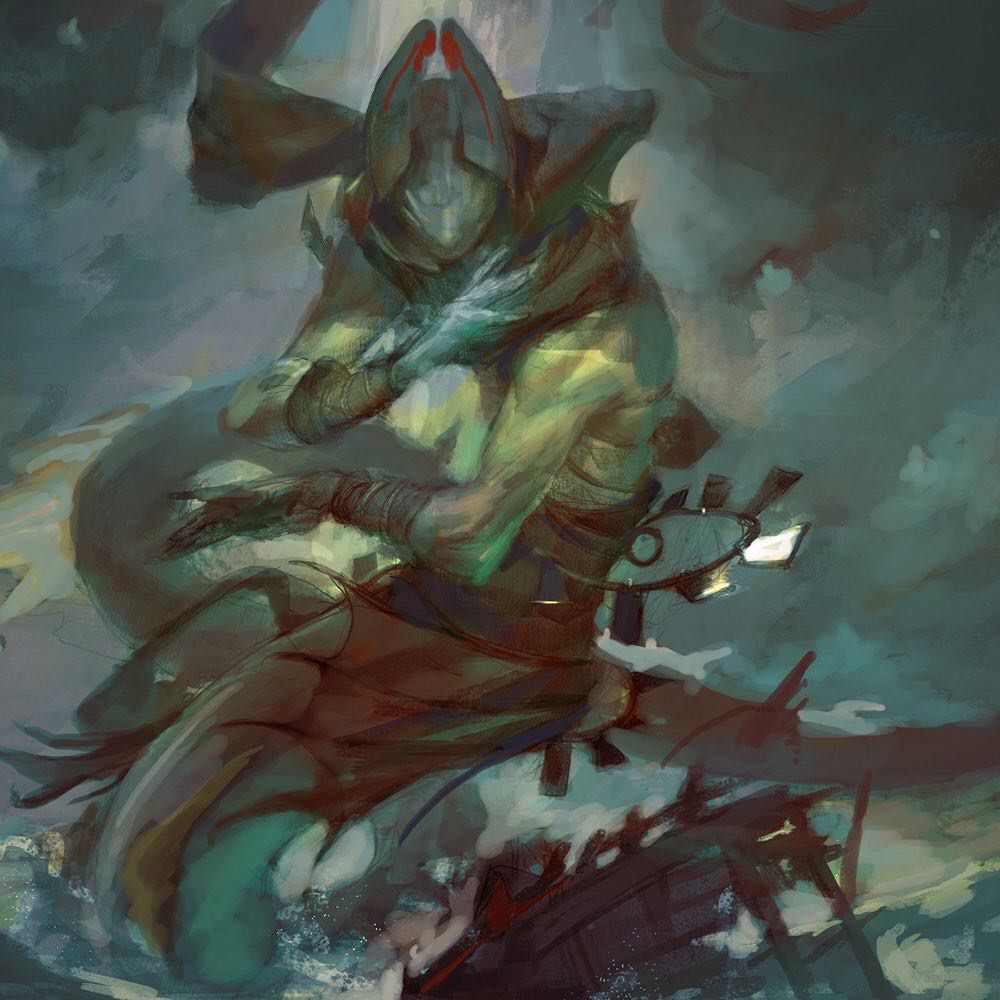Seafarer Dwarves - a Breed Apart
But not all Dwarves are so.
One group has transitioned to a life as alien as any Dwarf could imagine... a life at sea! These are the Seafarer Dwarves, and their society is quite unique - most would say strange - for any typical Dwarf to comprehend.
Culture
Culture and cultural heritage
Seafarers also have the ingrained sense of loyalty to a leader shared by all Dwarves. Mutinies on Seafarer vessels are practically unheard of. A crew is typically chosen from the clan members - this reinforces loyalties even more.
Most of the Seafarers have developed a lifestyle based around trade. Their ships are sought after by merchants of all races as they are well known as the most reliable and trustworthy bearers of goods from place to place across the oceans of Cartyrion.
But not every Seafarer deserves this trust, as there is one other quality that the Seafarers have inherited from their mountain-bound ancestors: the love of shiny things. This desire for wealth - gold coins, precious gems, finely crafted jewelry - leads some of the Seafarers to take up a life that involves liberating such treasures from the holds of other ships. But even here, the Dwarven sense of loyalty prevents them from raiding the ships of their cousin Seafarers. An act of piracy by a Seafarer vessel upon another has never been recorded in history.
Birth & Baptismal Rites
Clans and the Clan Dagger
The Seafarers share the concept of "Clan" with all other Dwarves. At birth, the family of a new Seafarer Dwarf begins to craft the ceremonial Clan Dagger that will be presented to the infant on its Naming Day.Naming Day
Seafarer children are not given their names until their first birthday. Prior to this day, they are simply "the little ones", or "the tykes", or some other similar affectation. On their first birthday, though, the mother of the child brings the infant to the ship on which she or the father sails on and announces "Here is so-and-so... your future crewmate!" The clan dagger - carefully wrapped to prevent an unfortunate injury - is then ceremonially presented to the child.Since the ship itself plays an important part in any Naming Day ceremony, it is traditional for the captain of a ship to make every effort to be in port in time for a child's Naming Day. This is not always possible of course, and in these instances, the ceremony is postponed.
Sailing Day
When a Seafarer child attains the age of ten, it is expected to leave the land-based home of whomever was raising it and joins the crew of the ship on which it may spend the rest of its life. These youths are the cabin boys of the ship, expected to learn from the crew all of the skills, customs, and behaviors expected of any good Seafarer. They are well treated, and since crew membership is practically hereditary, they often find themselves among more close family members than they had in their earliest years.Coming of Age Rites
Funerary and Memorial customs
If a Seafarer is lost at sea, and there is no body to return, that unfortunate's belongings are interred instead. To the family, the deceased is resting along with the rest of the ancestors that have gone on before.
Ideals
Gender Ideals
Courtship Ideals
Relationship Ideals
But for all Dwarves, blood is thicker than water, and even the Seafarers trace their Clan heritage back to the Twelve Clans that were first Awakened by Goranin deep inside the First Delve. Dwarves of the same clan feel a kinship for one another even when they hail from different regions around the world... whether they have chosen different lifestyles... even whether they are "crazy enough to spend their life in a bloomin' boat!
Major organizations
Ship Crews
When a Seafarer signs aboard a ship, it is often for life - or at least until the time they are too old to climb the rigging and pull their weight at sea. To be booted from a crew is the ultimate chastisement possible to a Seafarer, and one that suffers this fate is often doomed to never be recruited to another Crew - at least not one among the Seafarers. These often end up as crew on merchant vessels run by Humans.A retired Seafarer is not a forgotten one, though. When shipmates decide it is time to make the transition back to a life on land, they are still considered to be shipmates. The Seafarers even have an expression for these former companions - they are simply "in their berths". And when these retired Seafarers ultimately pass on to the next life, to their comrades, they are simply "in their home port".
Captains Guild
Those Seafarers fortunate enough to have either amassed the funds to purchase or build a ship, or who have inherited one from a family or clan member have the opportunity to reach the pinnacle of Seafarer society - they become Captains. The Captains form almost a clan among themselves, and though most of the day to day business of a ship's captain is concerned only with one's ship, it is this clan of captains - the Captain's Guild - that is involved in any activity that requires cooperation among ships and crews.Arabet Flamehair, the first female Captain
Do's and Don'ts Among the Seafarers
- Always keep your eyes on your shipmates in the rigging and on the deck.
- Always give aid to the distressed at sea, whether they be Dwarf, or any other Folk.
- Always seal a business deal with a toast to good fortune - and a tall mug of ale.
- Never raid the vessel of a fellow Seafarer.
- Never bring a child aboard a vessel before its Naming Day.
- Never do business with anyone who won't drink with you.







Dwarven pirate ocean-people! I love this twist on the typical mountain dwellers, as well as the fact that despite how they live their lives, they're still deeply rooted in their ancestry--down to even honoring other dwarves by never attacking their ships--and entomb their dead in stone with other Dwarfkin. The Seafarer's code is some wisdom for sure.
You are doing a great job! Keep creating; I believe in you!
Luridity: Where love is love and life is lived. Contains NSFW content.
Now with serialized fiction on Ream!!